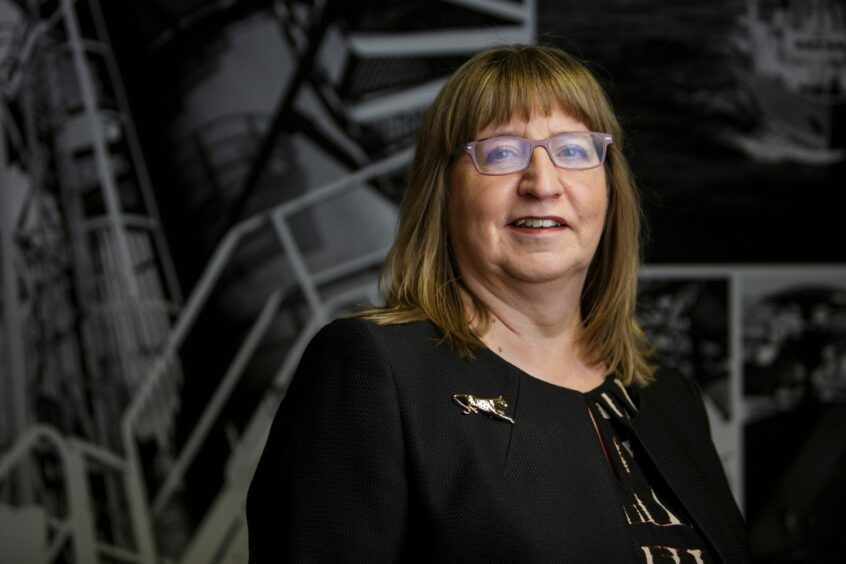
Retaining our fantastic workforce and their highly transferable skills is key to delivering the UK’s target of net zero carbon emissions by 2050.
From global powerhouses to emerging start-ups, from operators to supply chain companies, Offshore Energies UK members are meeting the UK’s needs across today’s energy mix. Their people will deliver our renewable energy needs tomorrow.
At Offshore Europe in September, our chief executive David Whitehouse chaired a session on the theme of Engage, Empower, Excel: Strategies for talent attraction and retention.
It was an invaluable opportunity to discuss what our sector needs to do collaboratively to attract, retain and encourage high-value talent over the coming decades to support our offshore energy sector.
The session focused minds on what our industry is doing to attract talent from multiple generations.
It also asked how in a rapidly changing energy landscape, we can engage more effectively with educational institutions and mentorship programmes to build a pipeline of skilled talent.
We have strong links with the team at Developing the Young Workforce (DYW) North East, one of 20 regional DYW groups in Scotland which aim to bridge the gap between industry and education by helping employers play an active role in preparing young people for life beyond school.
The Young Person’s Guarantee is an initiative to help connect every 16–24-year-old in Scotland to an opportunity – from a job or an apprenticeship, to further or higher education, to training or volunteering.
In February, we invited DYW to participate in our Share Fair and recently they gave a presentation at our sell-out Wells Seminar where many attendees expressed an interest in supporting the initiative.
We now hope more of our members will become an approved Young Person’s Guarantee Partner, a status which OEUK itself is delighted to have achieved.
Our Economic Report estimates the offshore energy sector could spend around £200 billion in the remainder of the decade.
This sum could be invested in the management of cleaner oil and gas production and decommissioning, expanding the country’s offshore wind capacity and establishing large-scale low-carbon hydrogen production and carbon transport and storage industries.
Also in September, Robert Gordon University published its ‘Powering up the Workforce’ report, which highlighted the growth in UK jobs which could be realised if the ambitions of the UK Government’s Energy Security Strategy are realised.
If government targets are met, the workforce in offshore energy could increase by almost 75,000 by 2030, to 225,000 by the end of the decade.
This report supports efforts to deliver a managed energy transition. However, it also imparted a warning: If we undermine investment in oil and gas, while also failing to unlock investment in renewables, then up to 95,000 potential energy jobs will be at risk.
OEUK has consistently championed people and skills. We advocate on behalf of members on important employment issues such as tax reform and immigration policy, as well as supporting initiatives including the Energy Skills Alliance, Skills Passport and Connected Competence.
These are some of the projects aimed at ensuring the full potential of the UK’s highly skilled people is realised as the expansion of homegrown offshore energies continues.
This is some of the work I am focusing on as theme lead for the People & Skills commitment in the North Sea Transition Deal.
This transformational agreement between the UK government and the offshore energy sector sets out the framework for us to make the UK’s energy cleaner and support jobs in a low-carbon future.
Central to making that future a reality is ensuring we have a diverse and inclusive working environment within the energy sector. By bringing our diverse experiences and perspectives to work every day, we can overcome challenges, find the best solutions, and accomplish them together.
As part of this work, I am looking forward to reading the findings of OEUK’s Diversity & Inclusion Task Group’s survey, which will help us identify the actions that impact driving positive change.
The 2023 survey results will feature in our forthcoming Workforce Insight report, which we will launch at OEUK’s Business Breakfast in P&J Live on November 9.
This event will be a great opportunity to find out what we are doing to ensure the UK is an attractive place to do business, provide jobs and ensure our workforce plays an integral role in delivering the affordable, reliable, lower carbon energy of tomorrow.
